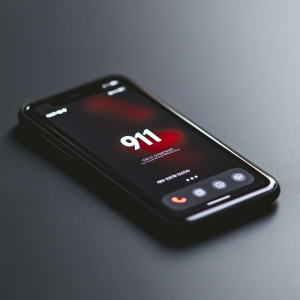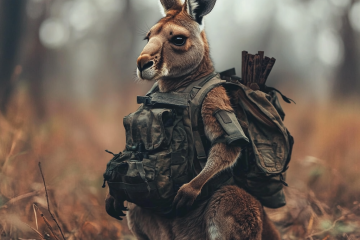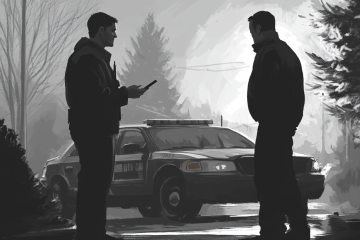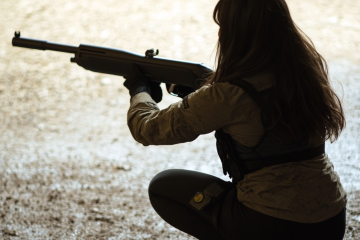
Have a place where you take a stand should someone enter your home uninvited
The moment you need to defend yourself is just the beginning. What happens in the critical minutes after a defensive incident can impact the rest of your life. Understanding and preparing for these moments is just as crucial as your marksmanship training. While many focus on the mechanics of self-defense, the aftermath requires equal preparation and practice.
In the immediate aftermath of a defensive incident, your body’s natural responses kick in. Start with your breathing – deep inhale through the nose, controlled exhale through the mouth. This helps manage adrenaline and maintains focus while allowing your mind to process what just happened. As your breathing steadies, scan your surroundings methodically: left, right, up, and down. Additional threats may be present, and tunnel vision is a common physiological response to stress. This scanning process should become second nature through regular practice, just like your trigger control.
Once you’ve confirmed no additional threats exist, secure your weapon safely. This could mean holstering or placing it out of reach, depending on your situation. Your next step is crucial – calling 911. Remember that recording begins the moment the phone starts ringing, not when the operator answers. Every word you say from this point forward may be used in subsequent legal proceedings. Keep your statements minimal and precise. If you’re a USCCA member, your membership card provides exact wording – use it. Don’t deviate from this script regardless of how clear-cut the situation may seem.
Immediately after connecting with 911, make your second critical call to the USCCA crisis hotline and follow their guidance precisely. While waiting for law enforcement, stay safe but observant. Take note of security cameras that might have captured the incident. Look for witnesses who may have seen what happened, but avoid engaging with them directly. Let your legal team handle witness statements later.
It’s crucial to understand that no matter how justified your actions may have been, every self-defense incident will be investigated as a potential crime. This is standard procedure, not a reflection on you or your actions. The responding officers aren’t there to determine if your actions were justified – they’re there to investigate a potential crime scene and gather evidence. This can feel confrontational or unfair, but it’s a necessary part of the legal process.

Be first to call 9-1-1 and identify yourself as a victim
When officers arrive, clearly communicate that you’re experiencing the effects of adrenaline and would prefer to make detailed statements after two sleep cycles and consulting with your attorney. Your body is flooded with stress hormones that can affect your memory and judgment. Acknowledging this physiological state shows both self-awareness and respect for the legal process. You can remain cooperative and compliant with officer commands while still protecting your legal interests by deferring detailed statements until after you’ve had time to process the event and consult with legal counsel.
Law enforcement officers must investigate thoroughly – it’s their job. While you should cooperate with basic instructions, avoid detailed statements until your attorney arrives. Even in the clearest cases of justified self-defense, your words can significantly impact both criminal and civil proceedings. The investigating officers may be sympathetic to your situation, but their primary duty is to gather evidence and document everything about the incident.
Mental preparation for defensive scenarios must include these post-incident protocols. Just as you practice drawing, aiming, and firing, you need to internalize the steps that follow any defensive action. The sound of the gunshot isn’t the end of your defensive encounter – it’s the beginning of a potentially lengthy legal process. Your freedom and financial security may depend on handling both the incident and its aftermath correctly.
Remember that being truly prepared means understanding that the moment of defense is just the beginning. The legal aftermath can last months or even years. Train for this reality just as diligently as you train with your firearm. Your post-incident actions are just as critical as your defensive ones, and both deserve equal attention in your preparation and practice routines. Practice these protocols until they become second nature, just like your shooting fundamentals. Your freedom may depend on handling both aspects correctly.


